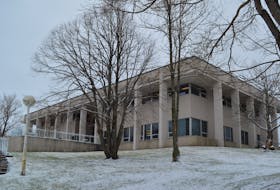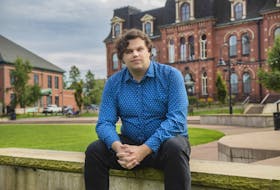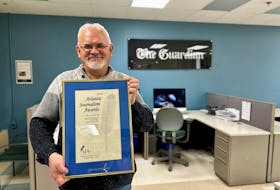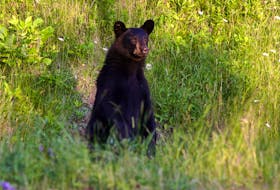I delivered a speech in Shanghai on food safety. Once home, I thought little more about it, until the news from Wuhan and its “wet market.”
Home for me is Atlantic Canada; I believe this region can play a key role in Canada’s need to get beyond the deadly embrace of COVID-19.
Recently, I participated in a global webinar, where speaker David Nabarro, envoy for the World Health Organization, stressed the need for global co-operation based on trust and common purpose, which was achieved in the Ebola crisis, but not yet on COVID-19.
When I first thought about China-Canada co-operation on COVID-19, I hoped it might honour Canada’s Norman Bethune and Li Wenliang, the Wuhan doctor who raised the alarm about the new coronavirus. US Secretary of State Mike Pompeo, referring to the “Wuhan virus,” blunted the prospect of global co-operation.
When Nabarro stressed the need for co-operation, he focused on “PPE” (personal protective equipment); Bethune died of blood poisoning in China because he operated on wounded soldiers without the protection of surgical gloves. He understood the value of PPE, as do Canadians worrying that health professionals may not have enough N-95 masks.
Early in the Wuhan outbreak, Canada sent a PPE shipment to China; in recent days, China responded in kind. Co-operation does work.
Let’s build on this. Canada’s National Research Council helps businesses build innovation capacity, get ideas to market and offers post-doctoral fellowships to provide young scientists with a unique opportunity to conduct research on topics of importance. Why not encourage a partnership between the NRC - a training ground for many of the scientists who later staff our Atlantic universities - and its Chinese counterpart to focus determined scholarship and research on COVID-19, and what might follow?
Into Africa
South Africa declared a state of emergency, Nigeria has asked the International Monetary Fund (IMF) for billions to fund its response to COVID-19, Zambia has its first death - the continent is slipping into tragedy.
Canada has a long engaged with Africa. Note Canada’s response to famine in Ethiopia, Commonwealth pressures to end apartheid in South Africa, and contribution in turning back the Ebola outbreak in the Democratic Republic of Congo.
WHO experts know they cannot simply apply to COVID-19 lessons from Ebola, but one development from that time is worth noting: the virus was impacting how they could keep each other informed. Doctors Without Borders responded by developing a laptop that could be cleaned with hand sanitizer and still function. Danger-free communication between health professionals was secured.
We must remember Ebola, and SARS, and MERS, and avoid thinking that there won’t be other pandemics after COVID-19; we might avoid or limit them if we are serious about lessons learned.
In Africa, efforts are underway to gain a clearer picture of rainforests and animal life there. Conservationists fear that development will impact the forest and its lifeforms, leading both to a worsened climate and more viruses like the one we face today.
So, as we deal with COVID-19, let’s not risk slipping back once the fight is won; instead, let’s keep up capacities that can be there for us and our neighbours in this global village. We could start by showing a firm commitment to learning and sharing in a manner consistent with Canada’s history of multilateralism.
The WHO is the “health” lead among the multilateral agencies, but others are important too. UNESCO, International Labour Organization (ILO), United Nations Environment Program (UNEP) and others have strengths to offer and resource needs in the face of the crisis. The ILO has released a report that the virus will “wipe out the equivalent of 195 million jobs.” Perhaps, if not already done, Canada’s ambassador to the UN in Geneva could discuss with the agencies just what might make a difference with Canada’s help.
First Nations contributions
Years ago, the ILO fashioned a convention to improve the status of Indigenous and Tribal People. Later, it was held to be assimilationist and was replaced by one respectful of the rights of those who had lived on and in their territories “since time immemorial.” Canadian First Nations leaders contributed.
When I initially encountered the First Nations citizens of our region as president of Cape Breton University (CBU), later the first university in Canada to hold a formal Convocation in a First Nations community, I was pleased to learn a research chair at CBU was dedicated to exploring the interface between traditional beliefs of the Mi’kmaq and the imperatives of modern science.
This has not blunted interest in the sciences but has contributed to scholars and students being interested in seeing things from all sides. This is evident from the strong growth in interest among First Nations youth in careers in medicine and health sciences, which suggests the value in establishing a medical school on Mi’kmaq land adjacent to the regional hospital in Sydney.
A university medical school could help focus on the serious deficits in Aboriginal health care across Canada while building a strong focus on emergency medicine and healthcare responses to pandemics. It could attract students from across the globe; already, Atlantic Canada is home to thousands of foreign students and more would be drawn here.
Of course, CBU is not alone in offering health-related programming, and there is more to know about the breadth and depth of university engagement with COVID-19. Atlantic premiers could hold an online encounter with Atlantic university heads to discuss how teaching and research might, now and in the future, contribute to the war against COVID-19 and successor pandemics.
In the 1990s, with Finland in a deep recession, the prime minister of that country called together university heads and major business leaders to talk about what could be done. One participant raised a thought which became the creation of Nokia, a leader in the explosive growth worldwide of cell phones. Our prime minister could similarly invite the heads of Canada’s universities and business leaders to talk with him about what must be done in the face of COVID-19.
Tomorrow
COP 26, the Glasgow meeting on climate change, has been postponed until 2021.
Meanwhile, research is underway, looking at possible connections between climate change and the emergence of a virus. Other research is focused on what effect huge spending to restore the economy after COVID-19 will have on decarbonization.
Canada fosters research. Valuable work is underway and should be catalogued and tested against possible avenues for commercialized activity to ensure we get past COVID-19 without accidentally fueling the emergence of a follow-up virus and ensuring sufficient tools are in place for future pandemics.
Clearly, good minds must be focused on what we need to do, and how.
CBU delivered courses in First Nations communities, and a professor arranged to take her class to the Art Gallery of Nova Scotia. Students were asked to choose a piece of art, study it, and be prepared to talk about it.
The professor came across an upset student looking intently at an angel, from a collection of French sculptor Auguste Rodin, on display in Halifax for the first time. The student was asked if something was wrong, and he replied, “This angel can never fly, it’s got two left wings!”
The professor was intrigued and contacted the foundry where the piece had been cast 100 years before. The managers of the foundry checked and were astounded - the student was correct. The foundry, Rodin, and perhaps one million people who had looked at the angel had not seen it had two left wings.
Clearly, not everyone who looks at an object, a problem or a possible solution and sees exactly the same thing as someone else. Hopefully, we will always be served by the presence of someone who sees things differently; this should give us hope COVID-19 will be defeated.
John Harker, from Lunenburg, N.S., is a former president of Cape Breton University.









